iHeartDogs is reader-supported. Some of the links below may be paid affiliate links, where we receive a small commission on a product at no additional cost to you.
When it comes to our furry friends, providing them with the best nutrition is a top priority for many pet owners. Homemade dog food has become increasingly popular, as it allows for complete control over the ingredients and ensures a fresh, wholesome diet. However, even the most balanced homemade meals might lack certain essential nutrients. That’s where homemade dog food supplements come into play. In this article, we’ll explore the best homemade dog food supplements, delving into natural and effective ways to enhance your dog’s diet. From vitamins and minerals to special ingredients for joint health, skincare, and digestion, we’ll cover all the bases to help your canine companion thrive on a homemade diet.
#1 – Dr. Mercola Meal Mix for Adult Dogs, 30 Packets, Non-GMO, Soy Free, Gluten Free
The Dr. Mercola Meal Mix for Adult Dogs is a product that provides a convenient way to create a nutritionally balanced, homemade food for adult dogs. It is made with human-grade vitamins and minerals, ensuring high quality. The product is non-GMO, soy-free, and gluten-free, aligning with Dr. Mercola’s commitment to providing the best quality products. Additionally, all Dr. Mercola products come with a 30-day money-back guarantee.
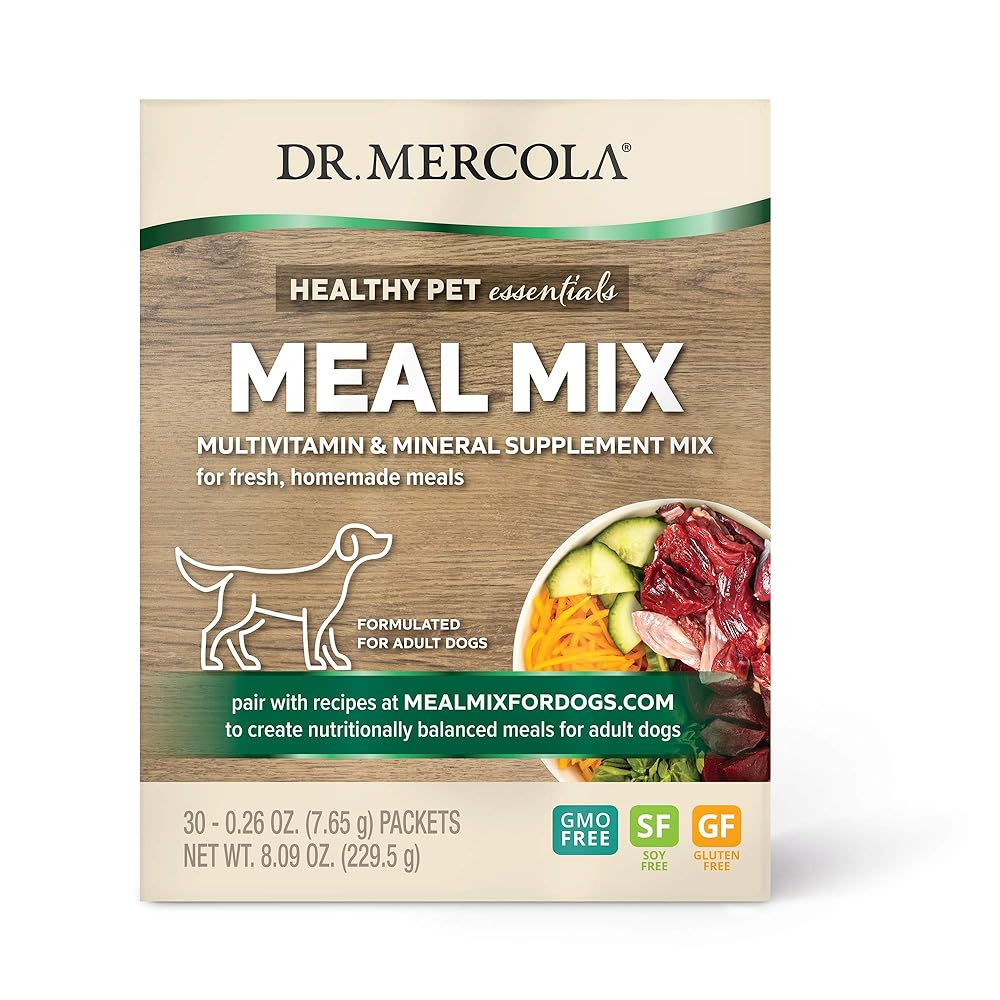
#2 – JustFoodForDogs DIY Nutrient Blend for Homemade Dog Food, Turkey & Whole Wheat Macaroni Recipe, 114g
JustFoodForDogs DIY Nutrient Blend for Homemade Dog Food is a product that allows dog owners to make their own dog food at home. It can be used as a full meal or as a dog food topper for picky eaters. The product comes with a cooking guide and step-by-step instructions to ensure a well-balanced diet for dogs. It is veterinarian-developed and formulated to meet AAFCO recommendations, using 100% human-grade nutraceuticals regulated by the FDA. JustFoodForDogs is a trusted and vet-recommended brand in the fresh dog food category, and their products have been used in clinical research trials.

#3 – Azestfor Homemade Dog Food Supplement Dog Vitamins Made in USA Add to Holistic Whole Food Diets Raw BARF All Breeds Puppy Adult 16oz Powder.
The Azestfor Homemade Dog Food Supplement is a powdered formula that contains 21 vitamins and minerals, chia seeds for omega-3 and omega-6 fatty acids, and natural kelp. It is designed to be added to holistic whole-food diets, including raw and BARF diets, for puppies and adult dogs of all breeds. The product also includes simple and healthy recipes to customize a diet plan based on a dog’s specific dietary needs, such as grain-free, weight loss, or allergies. Additionally, the supplement is manufactured in the USA.

#4 – Dog Vitamins Supplements Raw and Homemade Dog Food Multivitamins Minerals Powder 1lb Veggie Flavor
This dog vitamin supplement provides lasting health benefits, including reaching and maintaining an ideal weight, relieving dry and itchy skin, promoting a shiny coat, improving digestion, and boosting immunity. It is a tasty, veggie-flavored supplement ideal for picky eaters and dogs with allergies. Pet nutritionists formulated it contains 21 vitamins and minerals and meets AAFCO standards for dog food nutrition. It also comes with three free homemade dog food recipes on the back of the package and offers a money-back guarantee for unsatisfied customers.
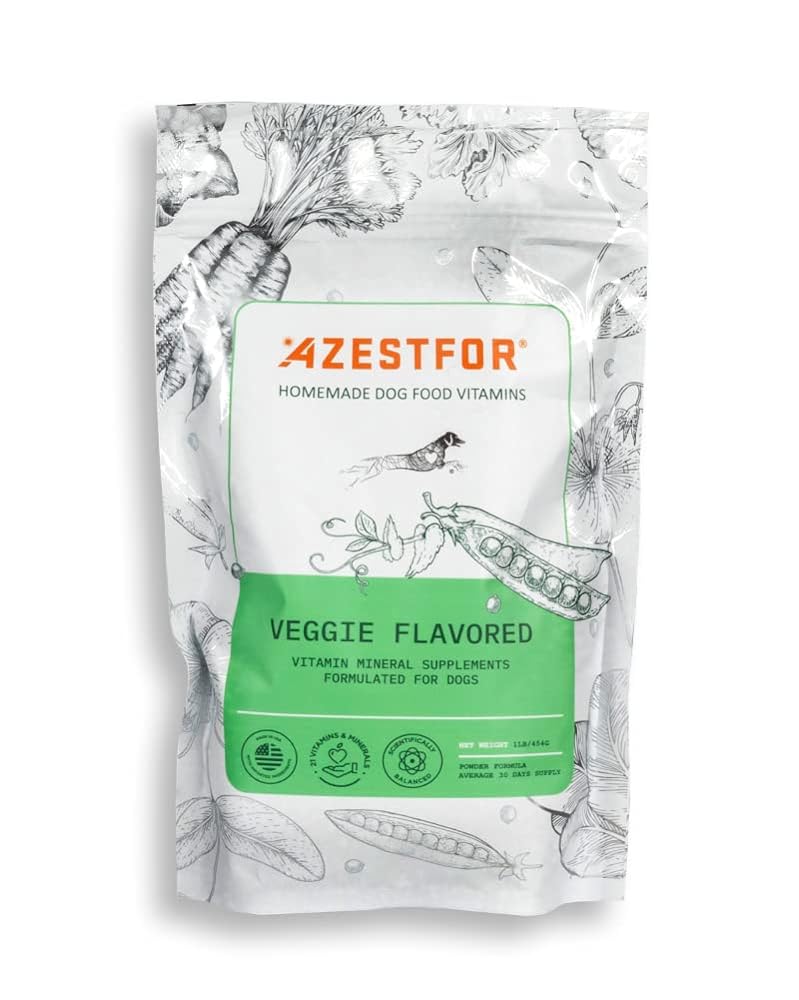
#5 – Wholistic Pet Organics Canine Complete: Multivitamin for Dogs Organic Homemade Dog Food Supplement Dog Multivitamin Powder with Probiotics Healthy Immune System Digestive Support for All Ages
The Wholistic Pet Organics Canine Complete is a dog food supplement that aims to improve a dog’s daily health. It contains a variety of vitamins, minerals, prebiotics, probiotics, digestive enzymes, essential fatty acids, and antioxidants. The supplement is made with organic ingredients and is easily digestible, making it suitable for dogs of all ages. Some potential benefits include improving appearance, restoring gut health, regulating immune function, and promoting normal cell, tissue, and organ function. The company has been trusted by professionals for over 15 years and is certified in all 50 states.
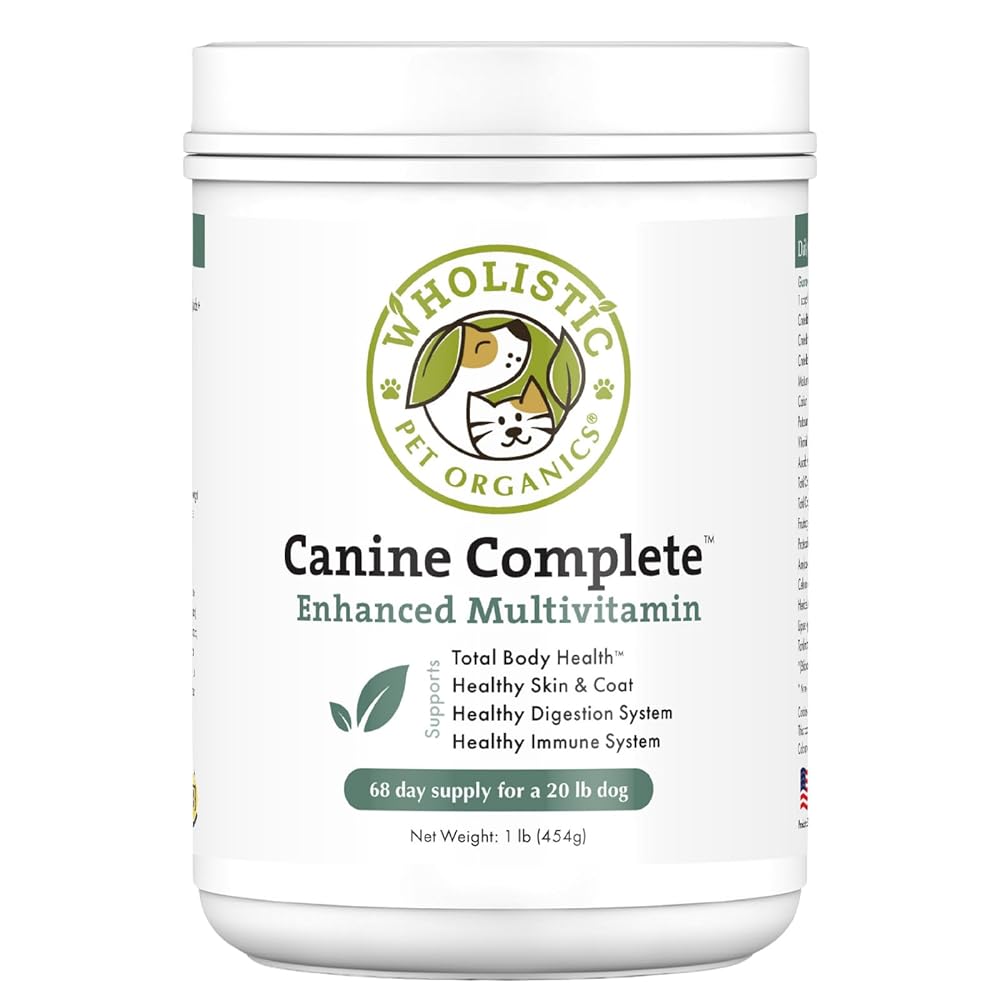
#6 – Earth Animal Daily Raw Cat Food & Raw Dog Food Topper | Complete Cat & Dog Vitamins Supplement| 1 Pound
The Earth Animal Daily Raw Cat Food & Raw Dog Food Topper is a supplement that can be added to a pet’s meals to provide essential vitamins, minerals, fiber, probiotics, digestive enzymes, and omega 3, 6, and 9 fatty acids. This supplement is designed to balance nutrients in a raw pet food diet and promote whole-body health. It is made with natural ingredients in the USA and is approved by the National Animal Supplement Council.
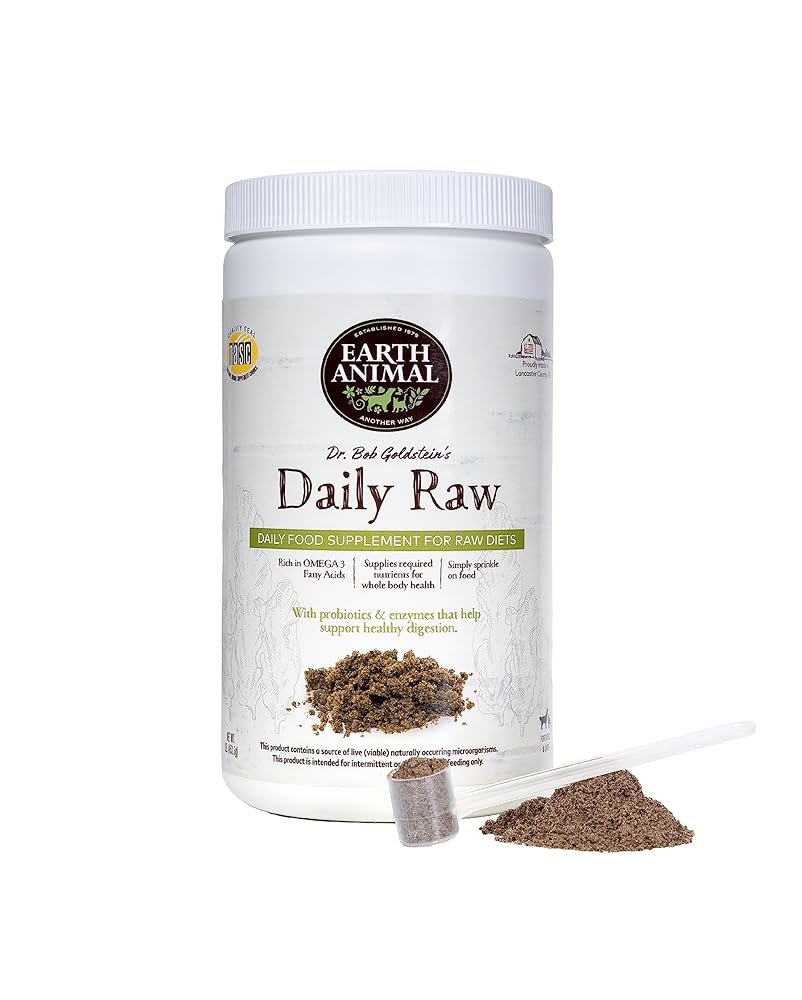
#7 – The Honest Kitchen Dehydrated Grain Free Fruit & Veggie Base Mix Dog Food (Just Add Protein), 7 lb Box
The Honest Kitchen Dehydrated Grain Free Fruit & Veggie Base Mix Dog Food is a versatile and convenient option for raw feeders and home cooks. It provides a healthy base that can be easily customized by adding meat or fish. Made with 100% human-grade ingredients and produced in a human food facility, this recipe guarantees higher quality and safety standards. It also contains no preservatives, by-products, fillers, or GMO ingredients, making it a natural and trustworthy choice for dog owners.
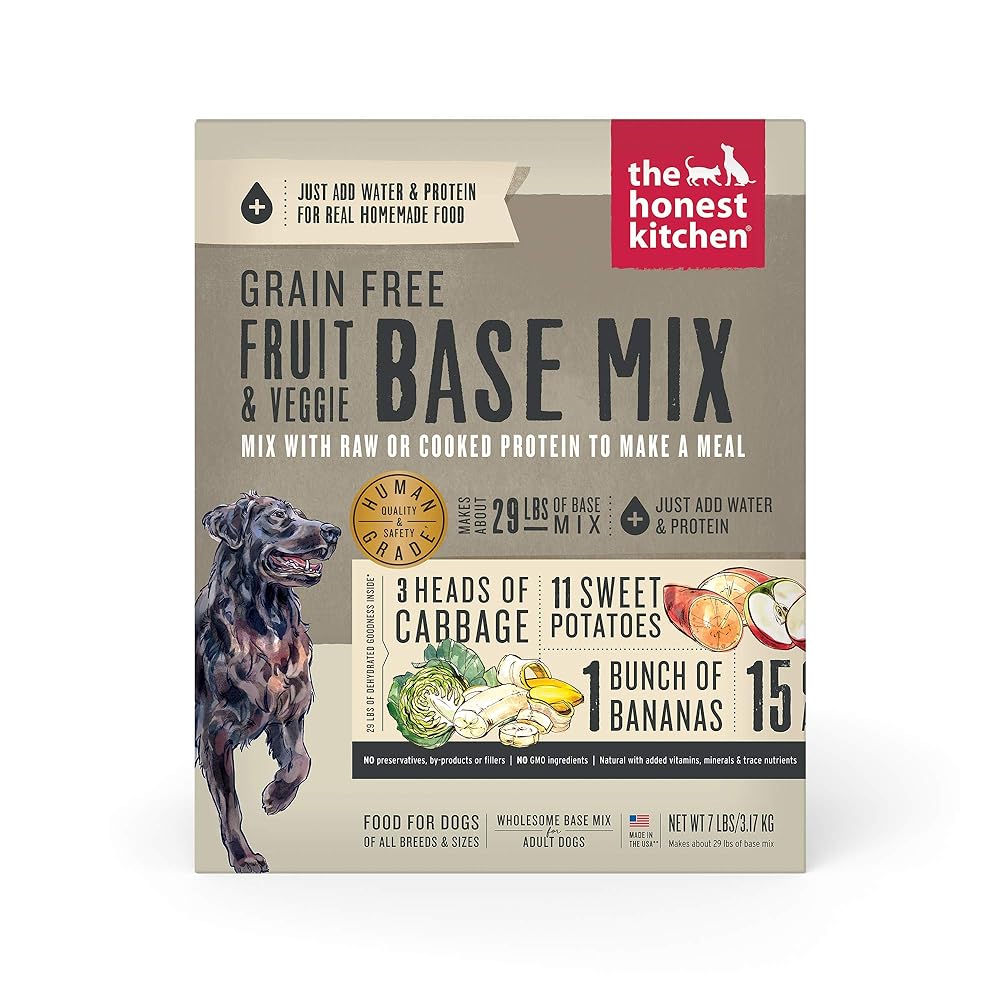
What Should I Look for When Choosing a Supplement for My Dog’s Homemade Food?
When choosing a supplement for your dog’s homemade food, there are several key factors to consider to ensure that your furry friend receives a balanced and nutritious diet:
- Nutritional Completeness and Balance: The supplement should provide the nutrients missing from your dog’s homemade meals. Look for products formulated to complement a home-cooked diet and balance vitamins, minerals, and other essential nutrients.
- Quality and Source of Ingredients: High-quality, natural ingredients are preferable. Check the source of the ingredients to ensure they are safe and appropriate for dogs. Avoid supplements with fillers, artificial colors, or preservatives.
- Specific Nutritional Needs: Consider your dog’s age, breed, size, and health issues. Puppies, seniors, and dogs with health conditions like arthritis or allergies may need different supplements.
- Form and Palatability: Supplements come in various forms, such as powders, liquids, and chews. Choose a form that is easy to administer and appealing for your dog to consume.
- Certifications and Standards: Look for supplements that meet industry standards and have certifications from reputable organizations. This ensures the product has been tested for safety and efficacy.
- Veterinarian Recommendation: Consult your veterinarian before supplementing your dog’s diet. They can provide personalized advice based on your dog’s health history and nutritional needs.
- Customer Reviews and Brand Reputation: Research the brand and read customer reviews to gauge the effectiveness and safety of the supplement.
By carefully considering these factors, you can select a supplement that complements your homemade dog food, ensuring your pet gets a well-rounded and nutritious diet.
Can I make homemade dog food without giving my dog a supplement?
Yes, you can make homemade dog food without using a commercial supplement, but it requires careful planning to ensure that the diet is nutritionally complete and balanced. Dogs have specific nutritional needs that must be met through their diet. Here are some key points to consider:
- Balanced Nutrition: A homemade diet must include the right balance of proteins, fats, carbohydrates, vitamins, and minerals. This balance is crucial for your dog’s overall health and well-being.
- Variety of Ingredients: Incorporate various ingredients to provide a range of nutrients. This includes lean meats for protein, vegetables, and fruits for vitamins and minerals, and appropriate carbohydrates like rice or sweet potatoes for energy.
- Proper Preparation: Cooking methods matter. Overcooking can destroy nutrients while undercooking can pose health risks. Research the best ways to prepare different ingredients for dogs.
- Consult a Veterinarian or a Canine Nutritionist: Before starting a homemade diet, it’s essential to consult with a professional. They can help formulate a diet that meets your dog’s needs and may suggest adding specific foods or natural supplements like bone meal for calcium or fish oil for omega-3 fatty acids.
- Regular Monitoring and Adjustments: Monitor your dog’s health and adjust their diet. Look for signs of nutritional deficiencies or excesses, such as changes in weight, coat condition, energy levels, and overall health.
- Avoid Toxic Foods: Be aware of foods toxic to dogs, like onions, garlic, grapes, and chocolate. Always check the safety of ingredients before including them in your dog’s diet.
Frequently Asked Questions About Supplements for Dogs on Homemade Diets
1. What are the essential supplements for a homemade dog diet?
Essential supplements for a homemade dog diet typically include vitamins, minerals, and essential fatty acids. These can include calcium, for bone health; omega-3 fatty acids, for skin and coat health; and a range of vitamins, such as A, D, and E, to support overall wellbeing. The specific supplements needed can vary based on the ingredients used in the homemade diet and the individual dog’s health requirements.
2. How do I know if my dog needs supplements in their homemade diet?
Knowing if your dog needs supplements in their homemade diet involves observing your dog’s overall health and consulting with a veterinarian or a canine nutritionist. Poor coat quality, lethargy, or other health issues can indicate a nutritional deficiency. A professional can help analyze your homemade diet and recommend appropriate supplements.
3. Can I use human vitamins and supplements for my dog?
It is not advisable to use human vitamins and supplements for dogs. Dogs have different nutritional needs and metabolisms compared to humans. Human supplements may contain ingredients that are harmful to dogs or provide incorrect dosages of nutrients. Always use supplements specifically formulated for dogs.
4. Are there natural sources of supplements I can add to my dog’s homemade food?
Natural sources of supplements can be added to a dog’s homemade food, such as bone meal powder for calcium, fish oil for omega-3 fatty acids, and cooked eggshells for additional minerals. However, it’s essential to research and consult a professional to ensure these are provided in safe and effective amounts.
5. How can I ensure my dog’s homemade diet is balanced with the right supplements?
Ensuring a dog’s homemade diet is balanced with the right supplements involves doing a thorough research and potentially working with a canine nutritionist. A professional can analyze your homemade recipes and recommend specific supplements to fill nutritional gaps. Regular health check-ups and monitoring your dog’s condition can also help adjust the diet.
6. What are the risks of over-supplementing my dog?
Over-supplementing a dog can lead to health issues such as vitamin toxicity, imbalanced nutrient ratios, and organ damage. For instance, too much calcium can affect bone health, and excess vitamin A can lead to toxicity. It’s crucial to follow recommended dosages and consult with a veterinarian.
7. How do I choose the right supplement brand for my dog?
Choosing the right supplement brand for your dog involves researching the brand’s reputation, checking for certifications and quality standards, and reading customer reviews. Look for supplements specifically formulated for dogs and consider your dog’s needs based on age, size, and health.
8. Can supplements replace a balanced diet for dogs?
Supplements cannot replace a balanced diet for dogs. They are meant to complement the diet and fill nutritional gaps, not serve as the primary source of nutrients. A well-rounded diet that meets a dog’s nutritional requirements is essential for their overall health.
9. How often should I give supplements to my dog?
The frequency of supplement administration depends on the type of supplement and your dog’s specific dietary needs. Some supplements are given daily, while others might be needed only a few times a week. Always follow the dosage instructions provided on the supplement label or recommended by a veterinarian.
10. Can dietary supplements help with specific health issues in dogs?
Dietary supplements can help manage specific health issues in dogs, such as joint supplements for arthritis or omega-3 fatty acids for skin conditions. However, they should be used as part of a comprehensive health management plan, often in conjunction with other treatments prescribed by a veterinarian. Always consult a professional before using supplements for health issues.
Conclusion: Best Homemade Dog Food Supplements
In conclusion, incorporating the right homemade supplements into your dog’s diet can make a significant difference in their overall health and well-being. By understanding the specific nutritional needs of your dog and opting for natural, high-quality ingredients, you can create a balanced and nourishing diet that supports their growth, energy, and longevity. Remember, it’s essential to consult with a veterinarian before making any major changes to your dog’s diet or introducing new supplements. With the right approach and knowledge, you can ensure that your homemade dog food not only tastes great but also provides all the essential nutrients your beloved pet needs.
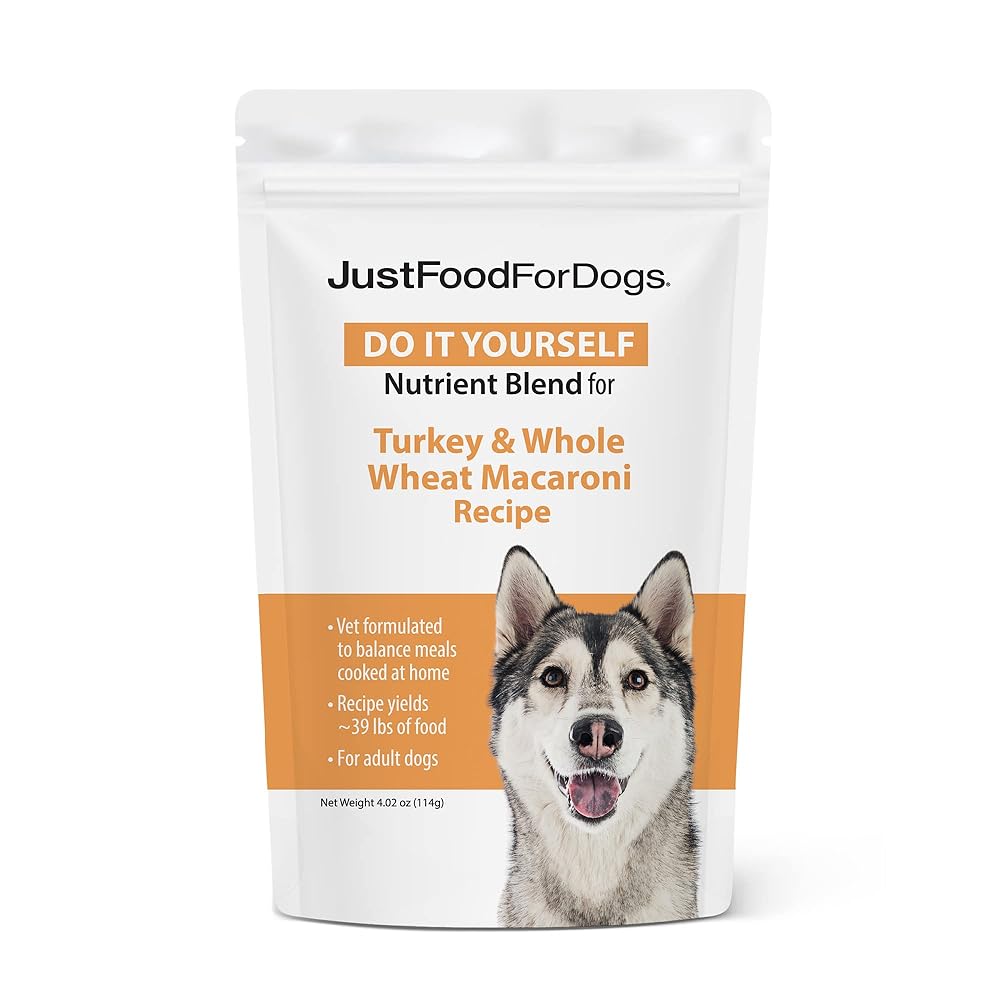
 Toledo, United States.
Toledo, United States.